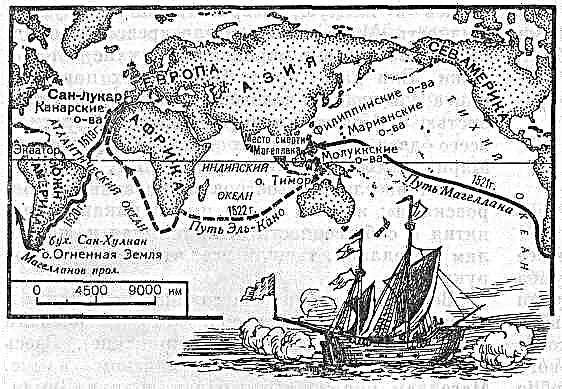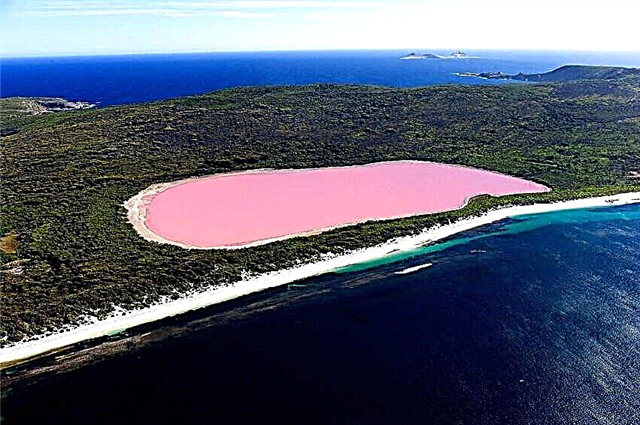Franz Kafka (1883-1924) - German-speaking writer considered one of the key figures in 20th century literature. The bulk of his works were published posthumously.
The writer's works are full of absurdity and fear of the outside world, combining elements of realism and fantasy.

Today, Kafka's work is immensely popular, whereas during the life of the author, it did not arouse the interest of the reader.
There are many interesting facts in Kafka's biography, which we will talk about in this article.
So, here is a short biography of Franz Kafka.
Biography of Kafka
Franz Kafka was born on July 3, 1883 in Prague. He grew up and was raised in a Jewish family. His father, Herman, was a haberdashery merchant. Mother, Julia, was the daughter of a wealthy brewer.
Childhood and youth
In addition to Franz, his parents had five more children, two of whom died in early childhood. The future classic was deprived of the attention of his parents and felt like a burden in the house.
As a rule, Kafka's father spent his days at work, and his mother preferred to take more care of his three daughters. For this reason, Franz was left on his own. In order to somehow have fun, the boy began to compose various stories that did not interest anyone.

The head of the family had a significant impact on the formation of Franz's personality. He was tall and had a low voice, as a result of which the child felt like next to his father a gnome. It is worth noting that the feeling of physical inferiority haunted the writer until the end of his life.
Herman Kafka saw in the son the heir of the business, but the shy and reserved boy was far from the parent's demands. The man brought up children in severity, teaching them discipline.
In one of the letters addressed to his father, Franz Kafka described an episode when he kicked him out onto a cold balcony just because he asked for a drink of water. This offensive and unjust case will forever be remembered by the writer.
When Franz was 6 years old, he went to a local school, where he received his primary education. After that, he entered the gymnasium. During his student years of biography, the young man participated in amateur performances and repeatedly staged performances.
Kafka then continued his studies at Charles University, where he received his doctorate in law. Having become a certified specialist, the guy got a job in the insurance department.
Literature
While working for the department, Franz was involved in occupational injury insurance. However, this activity did not arouse any interest in him, since he was disgusted with management, colleagues and even clients.
Most of all, Kafka loved literature, which was the meaning of life for him. However, it is worth recognizing the fact that thanks to the efforts of the writer, working conditions in production were improved throughout the entire northern region of the country.
The management appreciated the work of Franz Kafka so much that for about 5 years they did not satisfy the application for retirement, after he was diagnosed with tuberculosis in mid-1917.
When Kafka wrote a number of works, he did not dare to send them to print, as he considered himself a mediocrity. All manuscripts of the writer were collected by his friend Max Brod. The latter tried to persuade Franz to publish his work for a long time and after a while achieved his goal.
In 1913, the collection "Contemplation" was published. Literary critics spoke of Franz as an innovator, but he himself was critical of his work. During Kafka's lifetime, 3 more collections were published: "The Village Doctor", "Kara" and "Golodar".

And yet the most significant works of Kafka saw the light after the death of the author. When the man was about 27 years old, he and Max went to France, but after 9 days he was forced to return home due to severe abdominal pain.
Soon, Franz Kafka took up the writing of a novel, which eventually became known as America. It is curious that he wrote most of his works in German, although he was fluent in Czech. As a rule, his works were imbued with fear of the outside world and the highest court.
When his book was in the hands of the reader, he was also "infected" with anxiety and even despair. As a subtle psychologist, Kafka carefully described the actual reality of the world, using vivid metaphorical turns.
Just take his famous story "The Metamorphosis", in which the main character turns into a huge insect. Before his transformation, the character earned good money and provided for his family, but when he became an insect, his relatives turned away from him.
They did not care about the wonderful inner world of the character. Relatives were horrified by his appearance and the unbearable torment to which he unknowingly doomed them, including the loss of their job and the inability to take care of themselves. It is curious that Franz Kafka does not describe the events that led to such a transformation, drawing the reader's attention to the very fact of what happened.
Also after the death of the writer, 2 fundamental novels were published - "The Trial" and "The Castle". It is fair to say that both novels remained unfinished. The first work was created at that moment in his biography, when Kafka broke up with his beloved Felicia Bauer and considered himself as an accused who owes everyone.
On the eve of his death, Franz instructed Max Brod to burn all his works. His beloved, Dora Diamant, actually burned all of Kafka's works that she had. But Brod disobeyed the will of the deceased and published most of his works, which soon began to arouse great interest in society.
Personal life
Kafka was very scrupulous in his appearance. For example, before leaving for university, he could stand in front of the mirror for hours, carefully examining his face and styling his hair. The guy gave the impression of a neat and calm person with intelligence and a specific sense of humor on those around him.
A thin and thin man, Franz kept his shape and played sports regularly. However, he was not lucky with women, although they did not deprive him of their attention.
For a long time, Franz Kafka did not have close relationships with the opposite sex, until friends brought him to a brothel. As a result, instead of the expected delight, he experienced a deep disgust for what had happened.

Kafka led a very ascetic lifestyle. During the biography of 1912-1917. he was twice engaged to Felicia Bauer and annulled the engagement just as many times as if he was afraid of family life. Later he had an affair with the translator of his books - Milena Yessenskaya. However, this time it did not come to the wedding.
Death
Kafka suffered from a number of chronic illnesses. In addition to tuberculosis, he suffered from migraines, insomnia, constipation and other illnesses. He improved his health with a vegetarian diet, exercise and drinking copious amounts of fresh milk.
However, none of the above helped the writer to get rid of his ailments. In 1923 he traveled to Berlin with a certain Dora Diamant, where he planned to concentrate exclusively on writing. Here his health deteriorated even more.
Due to progressive tuberculosis of the larynx, the man experienced such severe pain that he could not eat. Franz Kafka died on June 3, 1924 at the age of 40. The reason for his death was obviously exhaustion.
Kafka Photos















